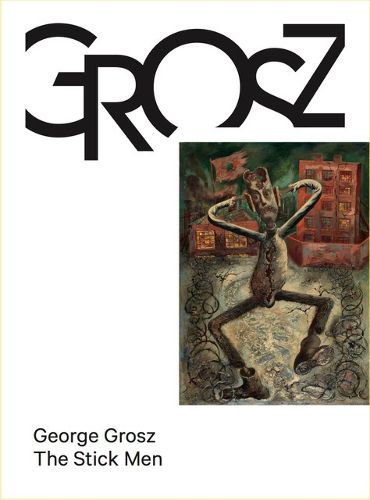Readings Newsletter
Become a Readings Member to make your shopping experience even easier.
Sign in or sign up for free!
You’re not far away from qualifying for FREE standard shipping within Australia
You’ve qualified for FREE standard shipping within Australia
The cart is loading…






A reexamination of an exiled German artist's final works at war's end
German draughtsman George Grosz (1893-1959) created his last major series of paintings and watercolors, the "Stick Men", beginning in the mid-1940s in reaction to the Holocaust and the other atrocities of the Second World War. The deployment of atomic bombs in Japan and the threat of a Third World War further deepened what the artist termed his "despair, hate and disillusionment." In his final works, he drew his figures as dehumanized, famished beings aimlessly wandering through a contaminated, post-apocalyptic world. As the first exhibition of the "Stick Men" series following the artists' death, this catalog contradicts the notion that Grosz had become "soft" and apolitical during his years spent in the United States. Rather, this series is the culmination of the political and artistic convictions of a lifetime of struggle: a timely and relevant legacy even today.
$9.00 standard shipping within Australia
FREE standard shipping within Australia for orders over $100.00
Express & International shipping calculated at checkout
A reexamination of an exiled German artist's final works at war's end
German draughtsman George Grosz (1893-1959) created his last major series of paintings and watercolors, the "Stick Men", beginning in the mid-1940s in reaction to the Holocaust and the other atrocities of the Second World War. The deployment of atomic bombs in Japan and the threat of a Third World War further deepened what the artist termed his "despair, hate and disillusionment." In his final works, he drew his figures as dehumanized, famished beings aimlessly wandering through a contaminated, post-apocalyptic world. As the first exhibition of the "Stick Men" series following the artists' death, this catalog contradicts the notion that Grosz had become "soft" and apolitical during his years spent in the United States. Rather, this series is the culmination of the political and artistic convictions of a lifetime of struggle: a timely and relevant legacy even today.